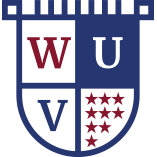Discover how Westmoreland University of Virginia is championing sustainability through its green campus initiatives and academic programs. This report delves into WUOV’s efforts to reduce its environmental footprint, integrate sustainability into the curriculum, and prepare students to become environmental stewards in their future careers.
Sustainability Initiatives at Westmoreland University of Virginia
Westmoreland University of Virginia (WUOV) is committed to championing sustainability through a comprehensive approach that encompasses green campus initiatives and forward-thinking academic programs. This report explores the university’s efforts to reduce its environmental footprint, integrate sustainability into its curriculum, and prepare students to become environmental stewards in their future careers. By prioritizing sustainability, WUOV is setting an example of how higher education institutions can contribute to a more sustainable future.
Green Campus Initiatives
WUOV’s green campus initiatives are designed to minimize the university’s environmental impact and promote sustainable practices across its operations. These initiatives encompass energy efficiency, waste reduction, water conservation, and green building practices.
Energy Efficiency and Renewable Energy
The university has implemented several energy efficiency measures to reduce its carbon footprint. This includes upgrading campus buildings with energy-efficient lighting, heating, and cooling systems. WUOV has also invested in renewable energy sources, such as solar panels and wind turbines, to power campus facilities.
The recent installation of a large solar array on the roof of the main academic building has significantly reduced the university’s reliance on non-renewable energy sources. This solar initiative not only lowers greenhouse gas emissions but also serves as a living laboratory for students studying renewable energy technologies.
Waste Reduction and Recycling Programs
WUOV has established comprehensive waste reduction and recycling programs to minimize the amount of waste sent to landfills. The university has implemented campus-wide recycling bins, composting programs for organic waste, and initiatives to reduce single-use plastics.
The “Zero Waste” program aims to achieve a significant reduction in campus waste by promoting practices such as reusable containers, digital documentation, and efficient waste sorting. Educational campaigns and workshops on waste reduction further engage the campus community in sustainable practices.
Water Conservation Efforts
Water conservation is a key focus of WUOV’s sustainability efforts. The university has adopted water-saving technologies, including low-flow fixtures, irrigation systems with moisture sensors, and rainwater harvesting systems.
The installation of rain gardens and green roofs on campus buildings helps manage stormwater runoff and reduces the strain on local water systems. These initiatives not only contribute to water conservation but also enhance the campus’s ecological value.
Green Building Practices
WUOV is committed to green building practices in the construction and renovation of campus facilities. The university follows sustainable building standards, such as LEED (Leadership in Energy and Environmental Design) certification, to ensure that new and renovated buildings meet high environmental performance standards.
Recent projects include the construction of a new academic building with energy-efficient design, sustainable materials, and low-impact construction practices. This building serves as a model for future campus developments and provides students with insights into green building techniques.
Integrating Sustainability into the Curriculum
Sustainability is an integral part of WUOV’s academic programs, with a focus on incorporating environmental principles into the curriculum and fostering interdisciplinary learning.
Sustainability-Focused Courses
The university offers a range of courses that focus on sustainability and environmental issues. These courses cover topics such as environmental science, sustainable development, green technologies, and climate change. They are designed to provide students with a comprehensive understanding of sustainability challenges and solutions.
For example, the “Environmental Policy and Management” course explores the formulation and implementation of policies aimed at protecting the environment and promoting sustainable practices. Students gain knowledge about regulatory frameworks, environmental impact assessments, and strategies for effective policy implementation.
Interdisciplinary Sustainability Programs
WUOV promotes interdisciplinary learning by offering programs that integrate sustainability concepts across various disciplines. The “Sustainability Studies” major, for instance, combines courses from environmental science, economics, and social sciences to provide students with a holistic perspective on sustainability issues.
The university also encourages collaborative projects that involve students from different academic backgrounds working together to address real-world sustainability challenges. These projects often involve partnerships with local organizations, businesses, and government agencies.
Research Opportunities in Sustainability
Students at WUOV have the opportunity to engage in research related to sustainability through various programs and initiatives. The university supports student-led research projects, internships, and collaborations with faculty on sustainability topics.
The “Sustainable Solutions Research Lab” is a notable example, where students and faculty work on projects related to renewable energy, waste management, and environmental conservation. These research opportunities provide students with hands-on experience and contribute to the development of innovative solutions for environmental challenges.
Preparing Students for Environmental Stewardship
WUOV’s commitment to sustainability extends beyond campus operations and academic programs to prepare students for roles as environmental stewards in their future careers. The university provides a range of resources and opportunities to support students in their pursuit of sustainability careers.
Career Development and Support
The university’s career services center offers guidance and support for students interested in sustainability-related careers. This includes career counseling, job placement assistance, and networking opportunities with professionals in the environmental field.
WUOV’s strong network of alumni working in sustainability roles provides valuable mentorship and career advice. Alumni often return to campus to share their experiences and offer insights into career paths in environmental management, conservation, and renewable energy.
Community Engagement and Service Learning
WUOV encourages students to engage in community service and service-learning projects focused on sustainability. These projects provide students with practical experience in environmental advocacy, community outreach, and sustainability education.
The “Community Green Initiative” is one such program that connects students with local organizations working on environmental projects. Students participate in activities such as tree planting, environmental education workshops, and sustainability assessments for local businesses.
Global Perspectives on Sustainability
WUOV offers global programs and partnerships that allow students to gain international perspectives on sustainability. Study abroad programs, international internships, and global research projects expose students to diverse approaches to environmental issues and solutions.
For example, the “Global Sustainability Exchange Program” provides students with the opportunity to study environmental practices in different countries and collaborate with international peers on sustainability projects. This global exposure enhances students’ understanding of global sustainability challenges and prepares them for careers in a globalized world.
Conclusion
Westmoreland University of Virginia (WUOV) is a leader in sustainability, championing green campus initiatives and integrating sustainability into its academic programs. Through its efforts to reduce environmental impact, incorporate sustainability into the curriculum, and prepare students for environmental stewardship, WUOV is setting a strong example for higher education institutions. By focusing on energy efficiency, waste reduction, water conservation, and green building practices, the university demonstrates its commitment to creating a more sustainable future. Through interdisciplinary learning, research opportunities, and global programs, WUOV equips students with the knowledge and skills needed to address environmental challenges and contribute to a sustainable world.







